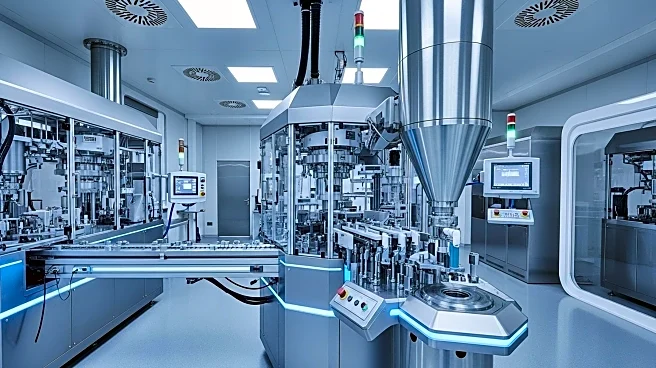What's Happening?
Branded Legacy Inc., through its subsidiary BioLegacy Evaluative Group, has inaugurated a new 22,000-square-foot Good Manufacturing Practice (GMP) facility in Vancouver, Canada. This facility is dedicated to the development and production of inhaled naloxone devices, aimed at addressing the opioid overdose crisis. The facility features advanced ISO Class 7 & 8 cleanrooms and high-containment capabilities, allowing for the safe handling of potent substances. The company has partnered with McMaster University and Stanford University to leverage cutting-edge research and infrastructure for developing affordable overdose-reversal solutions.
Why It's Important?
The opening of this facility is a significant step in combating the opioid crisis, which continues to be a major public health issue in the U.S. and globally. By enhancing the production capabilities of inhaled naloxone devices, Branded Legacy Inc. aims to make overdose-reversal solutions more accessible and affordable. This development could potentially save lives and reduce the burden on healthcare systems dealing with opioid-related emergencies. The facility also positions the company to expand its product pipeline, including nasal delivery of vaccines, which could be crucial in rapid pandemic responses.
What's Next?
Branded Legacy Inc. plans to utilize the facility's capabilities to accelerate the development of its patented intranasal naloxone delivery device. The company is also exploring opportunities to expand its product offerings to include nasal delivery of other medications, potentially opening new markets and improving access in underserved regions. The integration of advanced manufacturing and strategic academic partnerships is expected to drive innovation and scalability in the company's healthcare solutions.
Beyond the Headlines
The facility's focus on safe and compliant production of overdose-reversal devices highlights the ethical responsibility of pharmaceutical companies in addressing public health crises. The collaboration with leading universities underscores the importance of academic-industry partnerships in translating scientific research into practical healthcare solutions. This development may also influence regulatory standards and practices in the production of life-saving medications.









